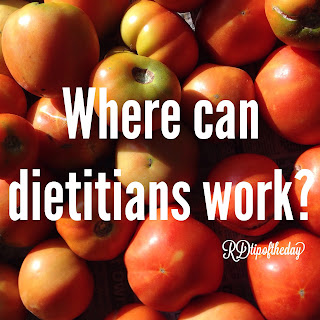Dear reader,
My story isn't a perfect, model story, but I hope it is relatable. I great
up eating Southern food. My mom made me eat vegetables because she is a great
mom and because I would have been perfectly content to live off desserts.
I started dancing when I was little. This was my primary form of physical
activity. I never thought of dance as exercise - fun, artistic, form of
expression, social, competitive, sport, - yes! but exercise . . . never!
When I went to college, a lot changed. I was only 17, a little naive, and I
had a lot to learn. I had so much to learn that I took 18 hours my first
semester. Yeah, 18! I planned my courses needed to graduate in 4 years (type A
much?!? Fun fact: most RDs I know are type A, so I'm in good company . . . and it was one of my assignments in Nutrition 1001). So, I had to take 18 hours
my first semester. needless to say, I studied a lot! Did you know that while studying
is great, it's a sedentary activity? Combine this with the fact I did not dance in
college, and I lived on campus and made it a goal to get my "money's
worth" out of the cafeteria. I found the massive gallons of ice cream and
fresh-baked cookies quickly. So to recap, studying + cookies and ice cream in
great quantities (because more is better - right???) minus dance = weight gain.
I gained quickly - about 20% of my body weight in 3 months. Yes, you heard me
right. Apparently, I am in an overachiever in many aspects of my life - weight
gain included.
"Failure is a great teacher, and I think when you make mistakes and you recover from them and you treat them as valuable learning experiences, then you've got something to share." - Steve Harvey
I learned a lot in the next 3 1/2 years at college about nutrition and found
other forms of exercise I enjoyed (Pilates, yoga, dance, elliptical, Frisbee, cycling, etc.). I slowly,
healthfully began to get back to my freshman weight, a healthy BMI (body mass
index), and an overall healthy lifestyle.
I hope that you learn a little something from the blog from this Southern RD. I would love to address topics or questions your have about nutrition. So, comment on the blog below or ask a question via Instagram and tag me @RDtipoftheday.
For more information, recipes, and tips and tricks for healthy eating, follow RDtipoftheday on
Pinterest,
Instagram, and
Twitter.

























